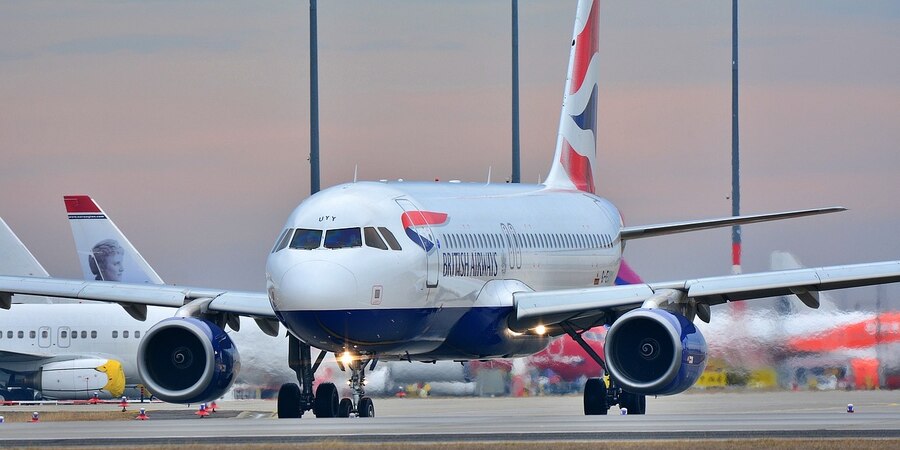Startups often find themselves juggling various aspects of travel management, from booking flights and accommodations to tracking expenses and ensuring the safety and well-being of their employees on the road. To navigate this complex terrain with efficiency and cost-effectiveness, startups are increasingly turning to digital travel tools. These tools encompass a diverse range of applications and platforms designed to streamline travel-related processes, enhance the traveler experience, and optimize expense management.
Best types of travel tools for startups
1. Travel Booking Apps
Travel booking apps such as Expedia, Kayak, or Skyscanner are indispensable for startups. These apps simplify the process of searching for and booking flights, accommodations, and transportation. They provide real-time price comparisons across multiple platforms, enabling startups to find the most cost-effective travel options. Moreover, user reviews and ratings help in making informed decisions. These apps are user-friendly and accessible via mobile devices, making them an ideal choice for on-the-go travel planning.
2. Expense Tracking Apps
Expense tracking apps like Expensify or Receipts by Wave offer startups a streamlined solution for managing travel-related expenses. Employees can effortlessly capture receipts, categorize expenses, and create detailed expense reports. These apps are especially beneficial for startups looking to maintain financial discipline and ensure accurate reimbursement for business expenses.
3. Corporate Travel Management Software
Comprehensive corporate travel management software such as SAP Concur or Egencia is essential for startups with more extensive travel needs. These platforms provide end-to-end solutions, including booking, policy enforcement, expense management, and reporting. They help startups ensure compliance with travel policies, optimize travel budgets, and gain valuable insights into travel spending patterns.
4. Travel Reward Programs

Participation in travel reward programs like Airbnb for Work or hotel loyalty programs can be cost-effective for startups. These programs offer rewards, discounts, and special perks for frequent business travelers. Startups can capitalize on these benefits to reduce accommodation expenses and provide incentives to employees.
5. Travel Insurance Apps
Travel insurance apps like World Nomads or SafetyWing offer peace of mind for startups and their employees during business trips. These apps provide coverage for various travel-related risks, including medical emergencies, trip cancellations, and lost luggage. For startups, having reliable travel insurance ensures the well-being of employees and helps mitigate financial risks associated with unexpected events.
6. Itinerary Management Apps
Itinerary management apps like TripIt or Google Trips assist startups in keeping travel plans organized. Employees can easily compile and access their travel itineraries in one place, eliminating the hassle of juggling paper documents and emails. These apps enhance travel efficiency by providing convenient access to essential trip details.
7. Mobile Wallets
Mobile wallet apps like Apple Pay and Google Pay facilitate contactless payments for business expenses while traveling. They offer convenience and security, allowing employees to make transactions seamlessly, even in foreign currencies. Startups benefit from these apps by promoting efficient and secure financial transactions during business trips.
8. Language Translation Apps
Language translation apps like Google Translate or Duolingo assist startups and their employees in overcoming language barriers when traveling internationally. These apps provide translation, pronunciation assistance, and even language learning capabilities. For startups engaging in global business, these tools are valuable for effective communication and cultural understanding.
9. Navigation Apps
Navigation apps like Google Maps or Waze provide real-time directions, traffic updates, and local insights. These apps are indispensable for startups with employees traveling to unfamiliar destinations. They help employees navigate efficiently, avoid traffic congestion, and discover nearby points of interest, ultimately saving time and reducing travel-related stress.
10. Virtual Meeting Tools
Virtual meeting tools such as Zoom or Microsoft Teams enable startups to conduct meetings and collaborate remotely. This reduces the need for extensive travel, particularly in situations where face-to-face interactions may not be necessary. These tools enhance productivity and cost-efficiency for startups while keeping employees connected across geographical boundaries.
11. Expense Card Solutions
Expense card apps like Brex or Divvy offer startups corporate credit cards with advanced expense management features. These cards streamline expense tracking, enhance financial control, and simplify reconciliation. They empower startups to monitor and manage business expenses more effectively while providing employees with convenient payment options.
12. Travel Security Apps
Travel security apps like International SOS or Global Rescue provide startups with real-time safety alerts, medical assistance, and crisis response services for employees traveling to high-risk or remote areas. These apps help ensure the safety and well-being of employees during business trips, aligning with a startup’s duty of care responsibilities.
Suggested Read: Top 9 Corporate Travel Expense Tracking Apps And Platforms
13. Travel Analytics and Insights Platforms
Travel analytics tools offer startups actionable insights into travel expenses, patterns, and trends. These insights are invaluable for optimizing travel budgets and policies. By analyzing data from travel analytics platforms, startups can identify cost-saving opportunities, negotiate better rates with suppliers, and make data-driven decisions to enhance overall travel management efficiency.
14. Digital Receipt Management
Tools like Shoeboxed or Evernote enable startups to digitize and organize receipts for expense reporting. These apps reduce the risk of losing paper receipts, simplify expense tracking, and contribute to more accurate financial record-keeping. Startups benefit from enhanced transparency and efficiency in expense management.
15. Sustainability Tools
Startups committed to sustainability can leverage tools like TripZero or Terrapass to calculate and offset the carbon footprint of business travel. These tools align with environmental goals and corporate social responsibility initiatives, demonstrating a commitment to eco-conscious practices during business trips.
Each of these digital travel tools plays a unique role in simplifying travel management, enhancing the travel experience, and supporting cost-effective and efficient business travel for startups. Depending on their specific needs and priorities, startups can select the tools that best align with their travel management objectives and operational requirements.
Suggested Read: How Do Travel Management Apps Assist Corporates And Agencies
Travel Tools For Startups FAQs
What are the best travel booking apps for startups?
Startups can benefit from travel booking apps like Expedia, Kayak, and Skyscanner, which provide real-time price comparisons, user reviews, and mobile accessibility for flight, accommodation, and transportation bookings.
How can expense tracking apps benefit startups?
Expense tracking apps like Expensify or Receipts by Wave simplify expense management, allowing employees to capture receipts, categorize expenses, and create detailed reports. They help maintain financial discipline and ensure accurate reimbursement.
How can startups benefit from travel reward programs?
Participation in travel reward programs like Airbnb for Work or hotel loyalty programs can help startups reduce accommodation expenses and provide incentives to employees through rewards, discounts, and special perks.



